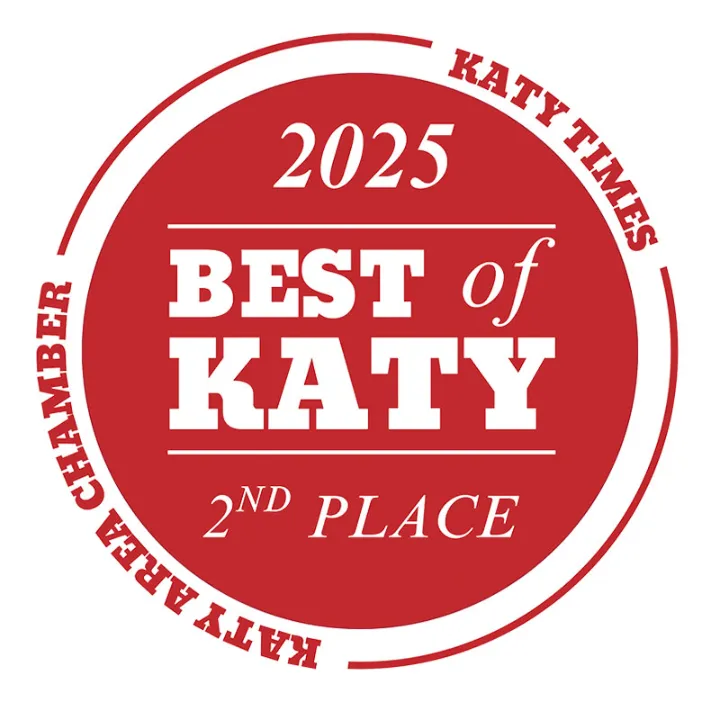Your Trusted Houston Commercial Real Estate Brokerage
Viking Enterprise LLC is part of eXp Commercial, an agent-led, cloud-based commercial real estate brokerage with agents across the globe.
Email: [email protected]
Call: (281) 222-0433
Your Trusted Katy / Fulshear & Houston Commercial Real Estate Brokerage
Viking Enterprise LLC is part of eXp Commercial, an agent-led, cloud-based commercial real estate brokerage with agents across the globe.
Looking to invest, buy, sell or lease? We can help.
Looking to invest, buy, sell or lease? We can help.
FEATURED PROPERTIES




OUR FEATURED TENANTS & CLIENTS
eXp Commercial - Viking Enterprise Team's real estate network provides unparalleled commercial real estate services to Tenants and Landlords around the Katy- Houston area. Our knowledge, experience, and reputation sets us apart from many firms.
A commercial property owner might have various plans that would necessitate the services of a commercial real estate broker. Some of the common scenarios include:
1. Selling the Property: If the owner decides it’s time to sell the property, a commercial real estate broker can help determine the market value, market the property effectively, and negotiate with potential buyers to get the best possible price.
2. Leasing Space: For property owners looking to lease out part or all of their commercial space, a broker can help find suitable tenants, negotiate lease terms, and ensure the lease agreements meet all legal requirements and serve the owner’s best interests.
3. Acquiring More Properties: Owners looking to expand their portfolio would benefit from a broker's knowledge of the market, access to listings, and negotiation skills to secure additional properties at favorable terms.
4. Property Management: While not all brokers offer this service, some commercial real estate brokers or their affiliates offer property management services. This can be particularly appealing for owners who prefer a hands-off approach or are managing properties from a distance.
5. Market Analysis: Owners considering future developments, renovations, or rebranding of their property might engage a broker for a comprehensive market analysis. This helps in understanding current market trends, the demand for different types of spaces, and potential returns on investment for various strategies.
6. Refinancing: In situations where a property owner is looking to refinance their property, a commercial real estate broker can provide valuable insights into the property’s current market value, assist in gathering necessary documentation, and even help in finding the best financing options.
7. Partnership or Investment Opportunities: Owners interested in exploring partnerships, joint ventures, or seeking investors for expansion or development projects might use a broker to find and vet potential partners or investors.
8. Consulting on Zoning and Use Changes: When contemplating a change in the use of the property or dealing with zoning issues, a broker with experience in local regulations and the specific property type can provide guidance and strategic planning assistance.
9. Exit Strategy Planning: For owners looking to plan an exit strategy from their investment, whether it’s through a strategic sale or a gradual winding down of operations, brokers can provide market insights, timing advice, and valuation services to optimize the exit process.
In any of these scenarios, the expertise and services provided by a commercial real estate broker can save the property owner time and money, while also providing access to a wider network of potential buyers, tenants, and industry professionals. Give us a call today!
Reviews

🧱 How to Build a Diversified CRE Portfolio 🏢 | Smart Investing Tips for 2025
🧱 How to Build a Diversified CRE Portfolio 🏢 | Smart Investing Tips for 2025
📊 CRE Portfolio Diversification Strategy 🏗️ | Protect & Grow Your Investments
🧱 How to Build a Diversified CRE Portfolio
In commercial real estate (CRE), diversification isn't just a buzzword—it’s a risk management strategy that builds resilience and unlocks long-term growth. Whether you're a seasoned investor or just starting out, constructing a diversified CRE portfolio can help you weather market shifts and capitalize on emerging trends.
Why Diversification Matters in CRE
Commercial real estate markets can be volatile. Economic downturns, interest rate hikes, and sector-specific disruptions (like remote work affecting office buildings) can wipe out returns if you’re overexposed to a single asset class.
A diversified portfolio spreads risk across multiple:
· Asset types (e.g., retail, industrial, multifamily, office, medical)
· Geographies (local, regional, out-of-state)
· Tenant mixes (credit tenants vs. mom-and-pop)
· Hold durations (core, value-add, opportunistic)
By diversifying strategically, you protect your downside while enhancing your upside.
Step-by-Step Guide to CRE Portfolio Diversification
1. Define Your Investment Goals
· Are you looking for cash flow, appreciation, tax advantages, or a blend?
· Your strategy (e.g., long-term passive income vs. short-term flips) determines how diversified you should be.
2. Mix Asset Classes Wisely
· Retail: Stable leases, especially in high-traffic corridors.
· Industrial: Exploding demand from e-commerce and logistics.
· Multifamily: Reliable cash flow with strong occupancy trends.
· Medical Office: Recession-resistant tenants with long-term leases.
· Land/Development: Higher risk, but potential for big returns.
3. Consider Geographic Spread
· Avoid putting all your capital into one metro area.
· Mix primary markets (like Houston or Dallas) with secondary/tertiary markets (like Katy or Fulshear) for growth potential and less competition.
4. Blend Passive and Active Investments
· Buy-and-hold deals, triple-net leases, syndications, and REITs offer passive options.
· Value-add or ground-up developments offer higher risk/reward for more hands-on investors.
5. Evaluate Tenant Risk and Lease Structure
· Triple-net (NNN) leases shift expenses to tenants and offer predictable returns.
· Multi-tenant centers diversify your rental income streams.
6. Rebalance Annually
· As the market evolves, your portfolio needs to adapt. Consider rebalancing based on performance, market conditions, and your changing goals.
Pro Tip: Work with a CRE Broker & Lender Combo
A team that understands both the brokerage and financing side (like Viking Enterprise Team + Medallion Mortgage) helps you evaluate opportunities holistically—whether you’re buying a medical office in Katy or refinancing a retail strip in San Angelo.
x
https://www.houstonrealestatebrokerage.com/
https://www.houstonrealestatebrokerage.com/houston-cre-navigator
https://www.commercialexchange.com/agent/653bf5593e3a3e1dcec275a6
http://expressoffers.com/[email protected]
https://app.bullpenre.com/profile/1742476177701x437444415125976000
https://author.billrapponline.com/
https://www.amazon.com/dp/B0F32Z5BH2
© 2023-2024 Bill Rapp, Broker Associate, eXp Commercial Viking Enterprise Team
eXp Commercial - Viking Enterprise team real estate network provides unparalleled commercial real estate services to Tenants and Landlords around the greater Katy & Houston MSA area. Our knowledge, experience, and reputation sets us apart from many firms.
A commercial property owner might have various plans that would necessitate the services of a commercial real estate broker. Some of the common scenarios include:
1. Selling the Property: If the owner decides it’s time to sell the property, a commercial real estate broker can help determine the market value, market the property effectively, and negotiate with potential buyers to get the best possible price.
2. Leasing Space: For property owners looking to lease out part or all of their commercial space, a broker can help find suitable tenants, negotiate lease terms, and ensure the lease agreements meet all legal requirements and serve the owner’s best interests.
3. Acquiring More Properties: Owners looking to expand their portfolio would benefit from a broker's knowledge of the market, access to listings, and negotiation skills to secure additional properties at favorable terms.
4. Property Management: While not all brokers offer this service, some commercial real estate brokers or their affiliates offer property management services. This can be particularly appealing for owners who prefer a hands-off approach or are managing properties from a distance.
5. Market Analysis: Owners considering future developments, renovations, or rebranding of their property might engage a broker for a comprehensive market analysis. This helps in understanding current market trends, the demand for different types of spaces, and potential returns on investment for various strategies.
6. Refinancing: In situations where a property owner is looking to refinance their property, a commercial real estate broker can provide valuable insights into the property’s current market value, assist in gathering necessary documentation, and even help in finding the best financing options.
7. Partnership or Investment Opportunities: Owners interested in exploring partnerships, joint ventures, or seeking investors for expansion or development projects might use a broker to find and vet potential partners or investors.
8. Consulting on Zoning and Use Changes: When contemplating a change in the use of the property or dealing with zoning issues, a broker with experience in local regulations and the specific property type can provide guidance and strategic planning assistance.
9. Exit Strategy Planning: For owners looking to plan an exit strategy from their investment, whether it’s through a strategic sale or a gradual winding down of operations, brokers can provide market insights, timing advice, and valuation services to optimize the exit process.
In any of these scenarios, the expertise and services provided by a commercial real estate broker can save the property owner time and money, while also providing access to a wider network of potential buyers, tenants, and industry professionals. Give us a call today!

Find the perfect location for your business.
Let us help your business succeed.

🧱 How to Build a Diversified CRE Portfolio 🏢 | Smart Investing Tips for 2025
🧱 How to Build a Diversified CRE Portfolio 🏢 | Smart Investing Tips for 2025
📊 CRE Portfolio Diversification Strategy 🏗️ | Protect & Grow Your Investments
🧱 How to Build a Diversified CRE Portfolio
In commercial real estate (CRE), diversification isn't just a buzzword—it’s a risk management strategy that builds resilience and unlocks long-term growth. Whether you're a seasoned investor or just starting out, constructing a diversified CRE portfolio can help you weather market shifts and capitalize on emerging trends.
Why Diversification Matters in CRE
Commercial real estate markets can be volatile. Economic downturns, interest rate hikes, and sector-specific disruptions (like remote work affecting office buildings) can wipe out returns if you’re overexposed to a single asset class.
A diversified portfolio spreads risk across multiple:
· Asset types (e.g., retail, industrial, multifamily, office, medical)
· Geographies (local, regional, out-of-state)
· Tenant mixes (credit tenants vs. mom-and-pop)
· Hold durations (core, value-add, opportunistic)
By diversifying strategically, you protect your downside while enhancing your upside.
Step-by-Step Guide to CRE Portfolio Diversification
1. Define Your Investment Goals
· Are you looking for cash flow, appreciation, tax advantages, or a blend?
· Your strategy (e.g., long-term passive income vs. short-term flips) determines how diversified you should be.
2. Mix Asset Classes Wisely
· Retail: Stable leases, especially in high-traffic corridors.
· Industrial: Exploding demand from e-commerce and logistics.
· Multifamily: Reliable cash flow with strong occupancy trends.
· Medical Office: Recession-resistant tenants with long-term leases.
· Land/Development: Higher risk, but potential for big returns.
3. Consider Geographic Spread
· Avoid putting all your capital into one metro area.
· Mix primary markets (like Houston or Dallas) with secondary/tertiary markets (like Katy or Fulshear) for growth potential and less competition.
4. Blend Passive and Active Investments
· Buy-and-hold deals, triple-net leases, syndications, and REITs offer passive options.
· Value-add or ground-up developments offer higher risk/reward for more hands-on investors.
5. Evaluate Tenant Risk and Lease Structure
· Triple-net (NNN) leases shift expenses to tenants and offer predictable returns.
· Multi-tenant centers diversify your rental income streams.
6. Rebalance Annually
· As the market evolves, your portfolio needs to adapt. Consider rebalancing based on performance, market conditions, and your changing goals.
Pro Tip: Work with a CRE Broker & Lender Combo
A team that understands both the brokerage and financing side (like Viking Enterprise Team + Medallion Mortgage) helps you evaluate opportunities holistically—whether you’re buying a medical office in Katy or refinancing a retail strip in San Angelo.
x
https://www.houstonrealestatebrokerage.com/
https://www.houstonrealestatebrokerage.com/houston-cre-navigator
https://www.commercialexchange.com/agent/653bf5593e3a3e1dcec275a6
http://expressoffers.com/[email protected]
https://app.bullpenre.com/profile/1742476177701x437444415125976000
https://author.billrapponline.com/
https://www.amazon.com/dp/B0F32Z5BH2
© 2023-2024 Bill Rapp, Broker Associate, eXp Commercial Viking Enterprise Team
Find the perfect location for your business.
Let us help your business succeed.
9600 Great Hills Trail, Suite 150w Austin, TX 78759 |
855.450.0324 xx255
Texas Real Estate Commission Consumer Protection Notice Texas Real Estate Commission
Information About Brokerage Services eXp Commercial LLC #9010212
Viking Enterprise LLC #9009614

Sign up to receive the latest news on property investment and commercial real estate listings.
Contact Us
901 S Mopac Expwy, Bldg 2, Suite 350 Austin, TX 78746 | 512.474.5557Texas Real Estate Commission
Consumer Protection Notice Texas Real Estate Commission Information About Brokerage Services Reliance Retail, LLC #603091
Texas RS, LLC #9003193 | RESOLUT RE Is Licensed In Louisiana #0995694083


Facebook
Instagram
X
LinkedIn
Youtube
TikTok